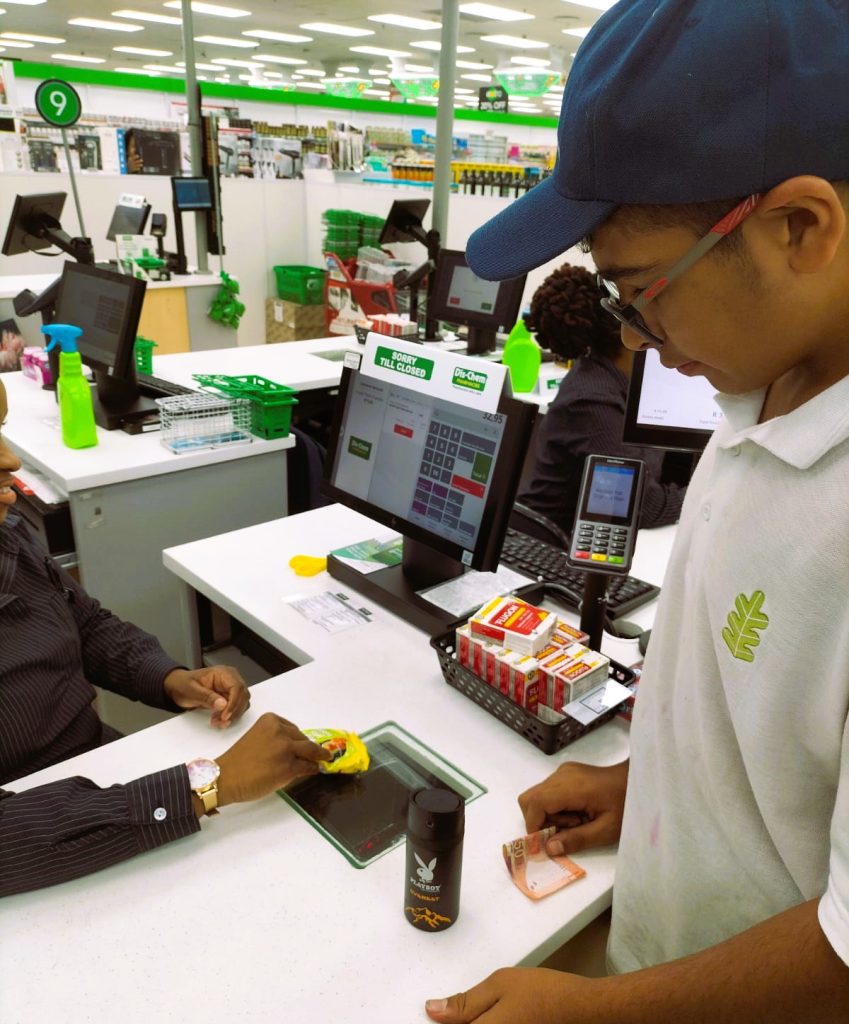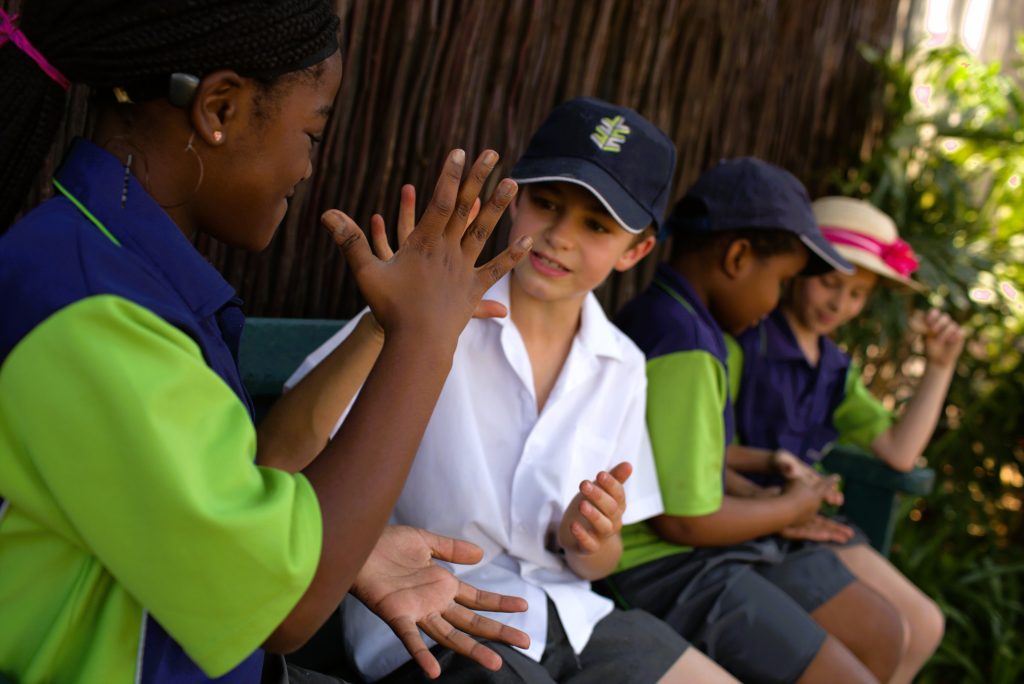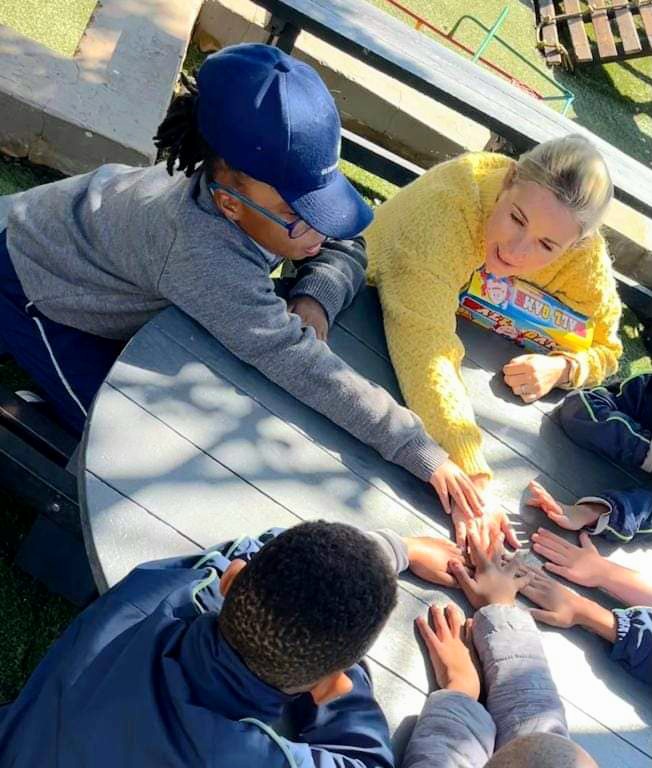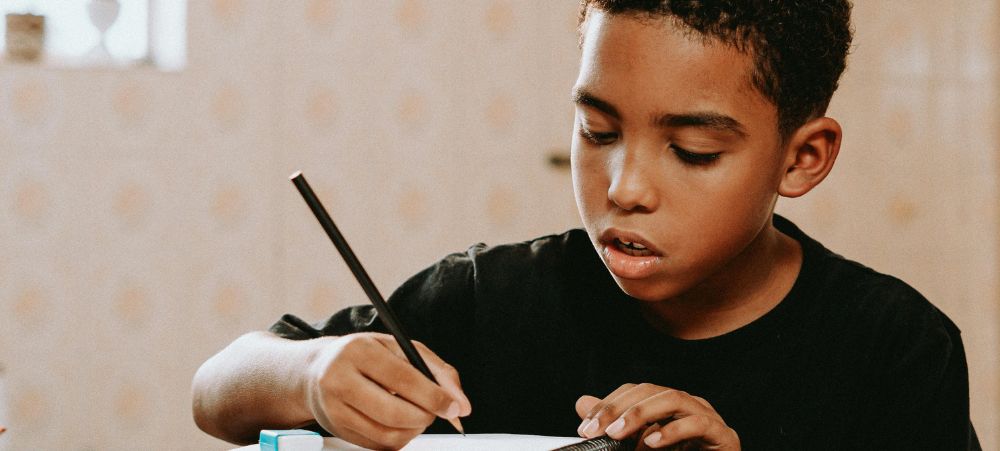 At Glenoaks Remedial and Vocational School, we recognise that our neurodiverse learners’ differences are part of a natural variation that don’t need to be remediated or changed. Our learners often find a sense of community with peers in the neurodivergent population. We see that they start to form a sense of identity and independence when they find their comfortable space and place.
At Glenoaks Remedial and Vocational School, we recognise that our neurodiverse learners’ differences are part of a natural variation that don’t need to be remediated or changed. Our learners often find a sense of community with peers in the neurodivergent population. We see that they start to form a sense of identity and independence when they find their comfortable space and place.
Our goal is to offer the opportunity for social interactions in an environment that is safe and encouraging. The therapist’s role is to guide them when they veer off track or are unsure of what to say or do in a situation. The learners are assisted with practical strategies and experiences in different contexts to raise their awareness about their own interactions and how to interpret others.
Learners find that increasing social demands that require skills such as holding a two-way conversation, interacting in a team work situation, communicating via social media, or appropriate use of humour are sometimes challenging to manage. They benefit from the support of their peers and therapist to develop these as well as their own self-identified goals such as setting verbal boundaries.
Every session focuses on the importance of non-verbal communication (body language), voice tone and facial expressions. We don’t force eye contact or spend time on abstract, generalised worksheets about typical social skills. Instead, learners often work in groups on real tasks to practice using non-verbal social skills in a meaningful way that best supports communication interactions.
Fostering executive function development is also an important focus of every session. We grow self-regulatory systems by building skills in team and work-based tasks such as:
- Perception, focus, and sustained attention
- Verbal and non-verbal working memory
- Inhibition, initiation and flexible thinking
- Self-monitoring, self-correction, and self-modulation
- Time sense, pacing and execution
- Anticipating, analysing, planning, organising and prioritizing
At Oakhouse Vocational Academy, a division of Glenoaks School, learners are aiming to enter the open labour market and so our focus is on assisting them with social interactions that could occur in work contexts. We support them through their work experience journey and provide weekly sessions to touch base, reflect on and problem solve different examples of real social interactions. The learners share actual successes or challenges and are assisted in addressing these as a group.
Some examples of the topics discussed and practiced include:

- Appropriate greetings
- Giving accurate messages to individuals and groups
- Requesting information telephonically and via email
- Asking for directions
- Conversational skills (topic introduction, maintenance, and repair strategies)
- Having group discussions
- Setting up meetings
- Planning and prioritising tasks as a group
- Developing social skills for events such as dancing and playing games
- Appropriate interactions with peers
 A brain growth spurt occurs during adolescence, making this an optimal period for learning new skills. It is an important time when our Academy learners are especially sensitive to their experiences. To successfully manage the transition to independent working adults, all adolescents need more insight into what they are experiencing. They also need relevant and meaningful work and supportive guidance.
A brain growth spurt occurs during adolescence, making this an optimal period for learning new skills. It is an important time when our Academy learners are especially sensitive to their experiences. To successfully manage the transition to independent working adults, all adolescents need more insight into what they are experiencing. They also need relevant and meaningful work and supportive guidance.
Our teenagers really do benefit from graded opportunities for self-management and social interaction. We believe in the goals of self-advocacy, awareness of others, developing future thinking, and practicing strategies for communication repair in real time and different contexts.
As a parent of a neurodivergent child it is so important to regularly expose them to social situations which provide opportunities for them to learn and practice these very needed life skills.
Written by Sairah Smith – Speech Therapist and Social Skills Educator at Glenoaks Remedial and Vocational School.
- When to Push My Child and When to Step Back - March 18, 2024
- Benefits of Including STEM into the Classroom - March 5, 2024
- The Role of Parents in the Education of Special Needs Children and Fostering a Collaborative Approach - February 21, 2024






2 thoughts on “Social Skills for Neurodiverse Learners”
This is such a helpful article on social skills for neurodiverse learners. The practical tips and strategies provided can make a real difference in helping these learners navigate social situations. Thank you for sharing this insightful advice!
Great article! I’m a neurodiverse parent and this is really helpful.